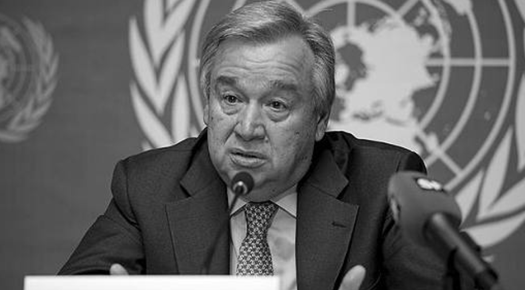
The Portuguese politician nominated to be the next UN secretary general is a deeply committed Catholic with an anti-abortion record and an involvement in charity work that dates back to his years as a university student. Guterres was born in Lisbon in 1949 and became an active member of the student branch of Catholic Action, a popular movement in the postwar Catholic world, while studying engineering in college.
An indirect Secretary-General election was held in October 2016 to choose the ninth Secretary General of the United Nations, who will succeed Ban Ki-moon on January 1, 2017. Candidates from the five permanent members of the Security Council were not considered for the role. In a series of straw polls in the Security Council, António Guterres as the leading nominee had 13 “encourage” votes, two abstentions and no “discourage” votes in the sixth round on October 5. On October 6, the Security Council recommended Guterres to the General Assembly, which formally selected him by acclamation on October 13.
In previous months, before the selection of the next UN secretary general, there was a sharp debate about the Portuguese candidate and his human rights record, especially his LGBT rights record. Concretely, in an interview with SIC – Portuguese Television Channel – in 1995, António Guterres said that “homosexuality is not an aspect that I particularly like”.
Also, many have pointed out his attitude towards the women rights. Members of his party presented a draft law to legalize abortion on demand up to 12 weeks of pregnancy. Guterres made his opposition clear, although as prime minister he chose not to be personally involved in the campaigns. In 2001, after disastrous results in local elections, Guterres stepped down and left the political scene, only to become high commissioner for refugees at the UN in 2005. Since then, the Socialist Party has become almost uniformly progressive, finally pushing through legal abortion in 2007 and making Portugal one of the first countries to legalize same-sex marriage less than a decade later.
Now, after the formal selection, António Guterres will replace Ban Ki-moon at the beginning of next year and it seems that he will face more difficult tasks than his predecessor.
"We need a surge in diplomacy for peace,” Guterres said, outlining his plan. “The international community spends much more time and resources managing crises than preventing them. A Secretary-General must continuously seek to contribute to reducing the number of conflicts and consequently the number of victims.”
Photo Credits: Wikimedia
